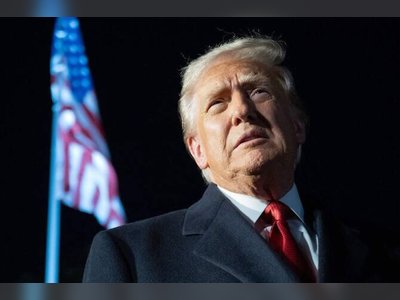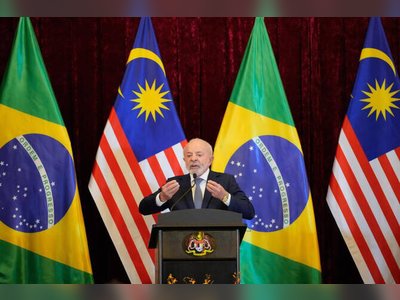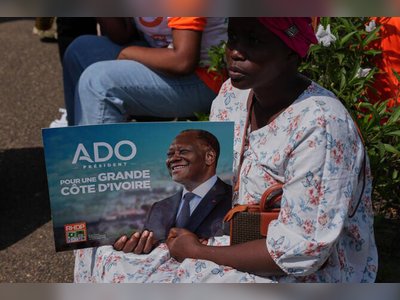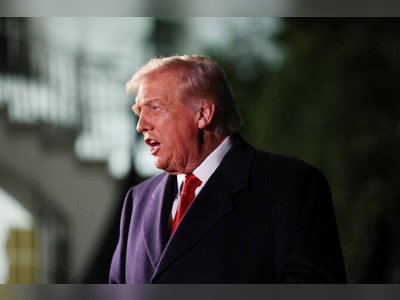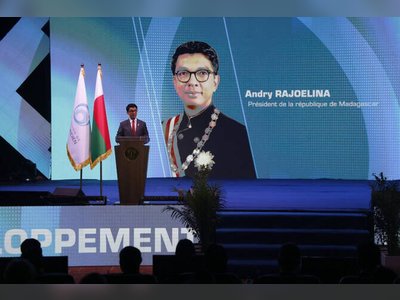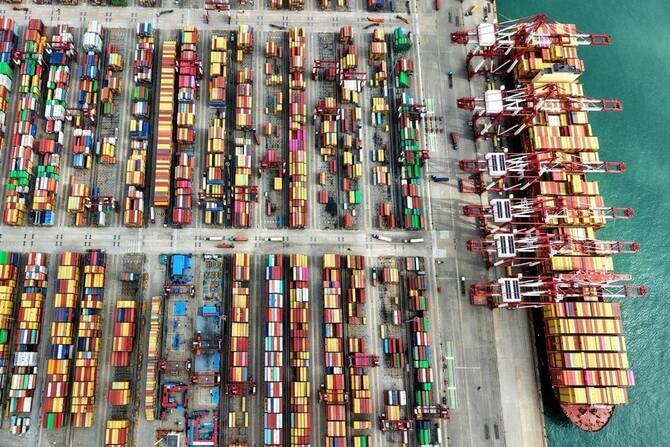
US, China Seek to Avoid Trade War Escalation in Malaysia Talks
Economic officials from the US and China aim to prevent a trade war escalation and pave the way for a Trump-Xi meeting.
KUALA LUMPUR: Top economic officials from the United States and China will convene in Kuala Lumpur on Saturday, seeking to avert an escalation of their ongoing trade war and ensure that a meeting occurs next week between US President Donald Trump and Chinese President Xi Jinping.
The discussions, taking place on the sidelines of the Association of Southeast Asian Nations (ASEAN) summit, aim to find common ground following recent threats and retaliatory measures from both sides.
The talks are prompted by Trump's threat to impose 100% tariffs on Chinese goods and additional trade restrictions starting November 1, in response to China’s expanded export controls on rare earth magnets and minerals.
These actions have disrupted a fragile trade truce previously agreed upon by US Treasury Secretary Scott Bessent, US Trade Representative Jamieson Greer, and Chinese Vice Premier He Lifeng during four meetings since May.
The meeting on Saturday will involve He, Bessent, and Greer in an effort to address the contentious issues surrounding China's rare earth controls and US technology export curbs.
According to Josh Lipsky of the Atlantic Council in Washington, the success of these talks is crucial for a potential interim ceasefire that allows the Trump-Xi meeting to proceed.
The specific details of the Kuala Lumpur meeting remain limited, with no official announcements from the Malaysian government or the participating parties regarding the outcomes.
The US and Chinese sides are expected to brief the media after the discussions, which may also be addressed by Trump upon his arrival in Malaysia on Sunday.
Scott Kennedy of the Center for Strategic and International Studies highlights the significance of these talks: if a deal is reached, it will demonstrate that both countries have successfully navigated their trade tensions.
Conversely, if no agreement is made, the situation could worsen considerably.
The two largest economies are working to prevent a resurgence of tariff escalation to triple-digit levels on both sides, following a sharp increase in April when Trump imposed global tariffs and China restricted rare earth exports to US buyers.
The 90-day truce, which significantly reduced tariffs and resumed the flow of magnets after an initial meeting in Geneva in May, has faced challenges with recent expansions of export blacklists by both nations.
The expanded US blacklist and China's new global rare earth export controls have disrupted previous agreements and raised tensions further.
Any progress made on Saturday could provide a foundation for temporary relief on tariffs, technology controls, and agricultural trade between the two countries.
The discussions, taking place on the sidelines of the Association of Southeast Asian Nations (ASEAN) summit, aim to find common ground following recent threats and retaliatory measures from both sides.
The talks are prompted by Trump's threat to impose 100% tariffs on Chinese goods and additional trade restrictions starting November 1, in response to China’s expanded export controls on rare earth magnets and minerals.
These actions have disrupted a fragile trade truce previously agreed upon by US Treasury Secretary Scott Bessent, US Trade Representative Jamieson Greer, and Chinese Vice Premier He Lifeng during four meetings since May.
The meeting on Saturday will involve He, Bessent, and Greer in an effort to address the contentious issues surrounding China's rare earth controls and US technology export curbs.
According to Josh Lipsky of the Atlantic Council in Washington, the success of these talks is crucial for a potential interim ceasefire that allows the Trump-Xi meeting to proceed.
The specific details of the Kuala Lumpur meeting remain limited, with no official announcements from the Malaysian government or the participating parties regarding the outcomes.
The US and Chinese sides are expected to brief the media after the discussions, which may also be addressed by Trump upon his arrival in Malaysia on Sunday.
Scott Kennedy of the Center for Strategic and International Studies highlights the significance of these talks: if a deal is reached, it will demonstrate that both countries have successfully navigated their trade tensions.
Conversely, if no agreement is made, the situation could worsen considerably.
The two largest economies are working to prevent a resurgence of tariff escalation to triple-digit levels on both sides, following a sharp increase in April when Trump imposed global tariffs and China restricted rare earth exports to US buyers.
The 90-day truce, which significantly reduced tariffs and resumed the flow of magnets after an initial meeting in Geneva in May, has faced challenges with recent expansions of export blacklists by both nations.
The expanded US blacklist and China's new global rare earth export controls have disrupted previous agreements and raised tensions further.
Any progress made on Saturday could provide a foundation for temporary relief on tariffs, technology controls, and agricultural trade between the two countries.
